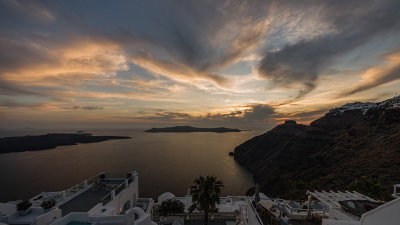I currently own a D7100, and I recently used my friend's D700. It was amazing. There is more bokeh in the shots, and there is just a different feel in terms of using it, and the look of the photos.
I feel that the transitions between the highlights and shadows are more smooth on the D700 than the D7100, but I wanna know if that is just my mind upplaying full frame cameras, or if it is actually true. If so, I wanna transition into full frame such as the d750.
More blur in front and back is normal for full-frame, and if you like that then you may want to switch.
I dunno how much homework you've done on the whole equivalence thing, but basically if you stand in the the same place and shoot the same thing, using the same lens on both your APS-C camera (the D7100) and your buddy's full-frame...
Your camera will give you 1.5x the focal length (so it's like being able to zoom 50% closer than his) but also 1.5x more depth of field, which you may not like. It means less of the background will be blurred, or the blurring won't be as heavy.
Dynamic range (which helps determine how the transition from highlights to shadows looks) is mostly about the sensor design. Nikon and Sony cameras are especially good at offering tons of dynamic range. And that applies to both FF and APS-C cameras.
In fact, in DXOmark tests, the latest versions of your camera and his camera (the d7200 and d750) are practically identical in the dynamic range department.
So you don't need to go full-frame to get those smooth transitions. What you're seeing on his D700 might be one of the other side effects of full-frame goodness. These include:
• More total light gathered on the sensor = a little less noise and a little more exposure
• Lower ISO needed to achieve the same exposure... dynamic range drops as you add ISO, so it's nice when you can keep it lower.
• Smaller depth of field might make the highlight-to-shadow transitions blurrier, and therefore they look smoother.
If you can afford the bigger sensor, and the difference in size and weight isn't a dealbreaker... and if you mostly own full-frame lenses that will be compatible... then I think you'll be happy if you switch.
The only exception might be if you like having 1.5x the focal length... basically more zoom. That's nice if you're shooting stuff like birds, which require a lot of zoom.
If birds aren't your thing, get a D750 or some other FF and you'll probably be very happy. I've certainly read many glowing reviews of the D750, it's the 2nd-highest-rated camera on this site, and DXOmark loves it also. It's a monster in terms of dynamic range and has lots of other pro features, which you'd expect if you are willing to drop $1000 more on your next camera than you probably paid for this one.


